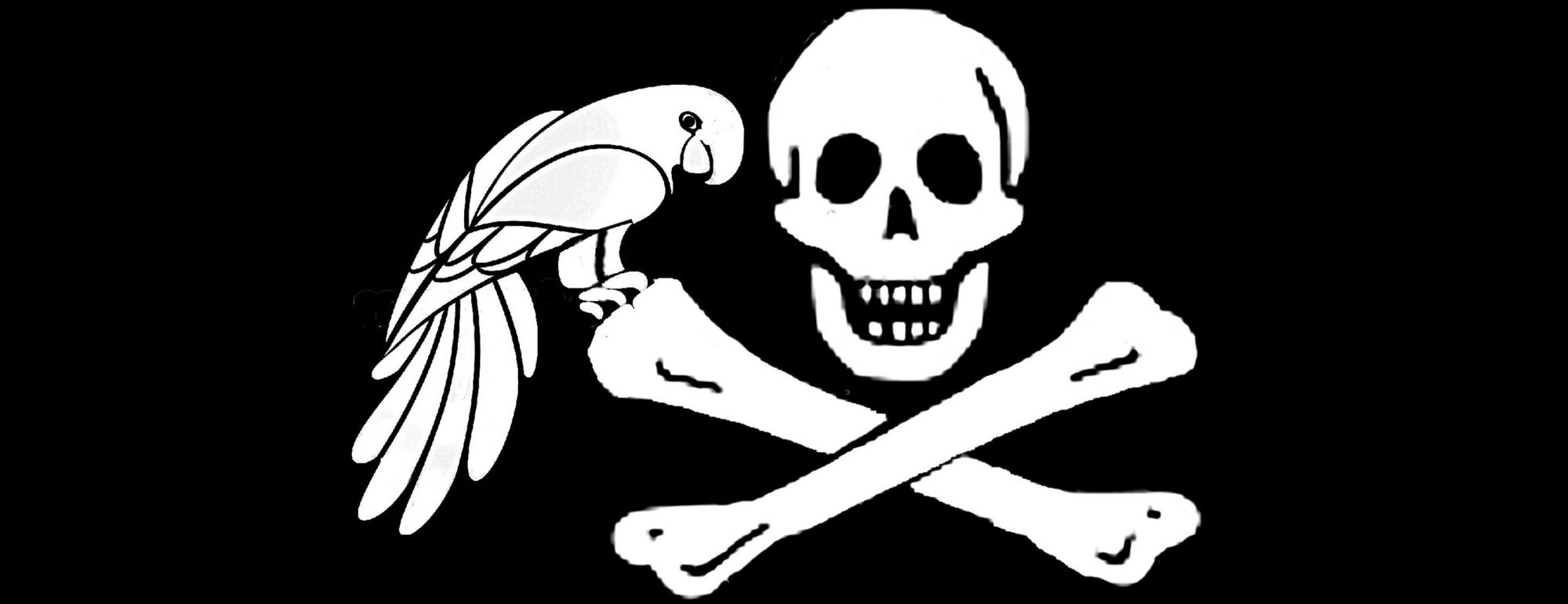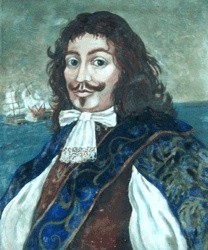Red Legs was without a doubt the luckiest pirate, since he was able to retire a wealthy man after starting life as a slave. The second luckiest was Sir Henry Morgan (1635 – 1688) was a Welsh privateer, pirate and admiral of the English Royal Navy who made a name for himself during activities in the Caribbean, primarily raiding Spanish settlements. He earned a reputation as one of the most notorious and successful privateers in history, and one of the most ruthless among those active along the Spanish Main.
Henry (or Harri as the Welsh say it, was the eldest son of Robert Morgan, a farmer living in the locality of Caerau, Cardiff, Wales. There was no record of Morgan before 1655. He later said that he left school early, and was “more used to the pike than the book.”
Alexandre Exquemelin, Morgan’s surgeon at Panama, said that Morgan came to Jamaica in 1658 as a young man, and raised himself to “fame and fortune by his valour”. History shows that Morgan’s uncle was Edward Morgan, who was Lieutenant-Governor of Jamaica, and that he married Edward’s daughter, his own cousin. This gave him a lot of pull in getting assigned as captain of a ship and later as Vice-Admiral of a privateer fleet.
Morgan is mainly known for raiding and looting Spanish settlements, including Panama. Although Panama was a rich city, Morgan and his men obtained far less plunder than they had expected. Much of the city’s wealth had been removed onto the Spanish treasure galleon, La Santisima Trinidad. had Morgan’s men not decided that celebrating the capture of Panama was of higher importance than chancing their efforts with a ship which, at that point may or may not have been of any value, then they would have remained in a fit enough state to have made an attempt on it before the ship had had time to exit the bay. In reasoning, their decision at that time did not appear a bad one. As well as considering the further risk they would have exposed themselves to after battling with the Governor of Panama and his army, they were still in desperate need of victuals to satiate their extreme hunger after weeks of arduous marching from Fort San Lorenzo; the Spanish having made every effort to starve them on their approach by ensuring all villages were empty of provisions, and had setup numerous ambuscades by which to attack and taunt them.
However, upon learning the extent of the wealth transferred onto that galleon, their decision turned out to be a major error in their judgement. For if they had remained sober enough and chosen to venture that little further, with their superior nautical skills at their disposal, they would have surely landed the amount of spoils they were expecting. Most of the inhabitants’ remaining goods were destroyed in a fire of unclear cause. Morgan’s men tortured those residents of Panama they could catch, but very little gold was forthcoming from the victims. After Morgan’s attack, the Panama city had to be rebuilt in a new site a few kilometres to the west (the current site). The former site is called Panamá Viejo and still contains the remaining parts of the old Panama City.
Because the sack of Panama violated the 1670 peace treaty between England and Spain, Morgan was arrested and conducted to the Kingdom of England in 1672. He proved he had no knowledge of the treaty. When Spanish and English relations deteriorated, Morgan was knighted in 1674 before returning to Jamaica the following year to take up the post of Lieutenant Governor.
In 1683, Morgan was suspended from the Jamaican Council by the machinations of Governor Lynch. Also during this time, an account of Morgan’s disreputable exploits was published by Alexandre Exquemelin, who once had been his confidante, probably as a barber-surgeon, in a Dutch volume entitled De Americaensche Zee-Roovers (About the Buccaneers of America). Morgan took steps to discredit the book and successfully brought a libel suit against the book’s publishers William Crooke and Thomas Malthus, securing a retraction and damages of two hundred English pounds. The book nonetheless contributed much to Morgan’s reputed fame as a bloodthirsty pirate during the time he was in Newport.
Morgan had lived in an opportune time for privateers. He was able to successfully use the conflicts between England and her enemies both to support England and to enrich himself and his crews. With his death, the pirates who would follow would also use this same ploy, but with less successful results.

